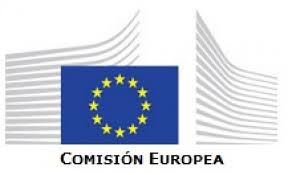La Jornada se celebrará el próximo 6 de octubre de 2016 en el marco de la Feria internacional
FRUIT ATTRACTION 2016 (auditorio del Pabellón 7).
El objetivo de esta Jornada es reunir a representantes destacados de la Ciencia, Empresa y Administración española para transmitir la revolución tecnológica que está teniendo lugar en Biología Vegetal, destacando así la crucial herramienta de mejora competitiva que estos avances proporcionan al sector de la producción vegetal, y cuál es el contexto internacional y las tendencias en este sentido. Nuestra intención es estimular la innovación en el sector a través de la generación de contactos y proyectos entre Oferta y Demanda tecnológica, entre Ciencia y Empresa, con el fin de potenciar la colaboración público-privada en I+D, que entendemos de importancia capital para el desarrollo tecnológico y económico del sector agroalimentario.
 Fecha:
Fecha: jueves 6 de octubre de 2016
Hora: de 12:00 a 14:00 horas
Lugar: Feria FRUIT ATTRACTION. Fruit Forum 7. Pabellón 7 de IFEMA. Avenida del Partenón nº5, Feria de Madrid (28042) Madrid
 Inscripción:
Inscripción: GRATUITA HASTA COMPLETAR EL AFORO
*La inscripción incluye pase profesional de acceso completo a Fruit Attraction, cortesía de BIOVEGEN. ESTE PASE ES NECESARIO PARA ACCEDER A LA JORNADA.
INVITACIÓN PROFESIONAL CORTESÍA DE BIOVEGEN
CÓDIGO: FA160001383FV
PROGRAMA
12:00 h. Bienvenida e introducción
12:10 h. CIENCIA: Revolución tecnológica y nuevas herramientas en Biología Vegetal
Gabino Sánchez-Pérez. Plant Research International, Universidad de Wageningen
Contenido: Visión científica de la situación actual y tendencias futuras de la Biología Vegetal. Herramientas y procesos disponibles para el desarrollo de nuevos productos
12:40 h. EMPRESA: Tendencias de la I+D agroalimentaria. Necesidades y demandas tecnológicas del sector agroalimentario
Jorge Jordana Butticaz de Pozas. Patrono Director Área Agroalimentaria. Fundación LAFER
Contenido: Visión de la industria agroalimentaria y necesidades del sector privado en el ámbito de la innovación agroalimentaria: producción primaria y transformación. Evolución y perspectivas del sector privado desde el punto de vista de la I+D
13:10 h. CONTEXTO: Presente y futuro de la producción vegetal. Marco legislativo y demandas futuras de mercado
Luis González Vaqué. Coordinador del Área de Políticas Agroalimentarias. Fundación TRIPTOLEMOS
Contenido: Marco legislativo europeo e internacional de las tecnologías ofrecidas por la Biología Vegetal en el contexto de las demandas futuras del mercado de la producción vegetal. Evolución, tendencias actuales y perspectiva de futuro
13:40 h. BIOVEGEN como catalizador de I+D en producción vegetal
Gonzaga Ruiz de Gauna Gutiérrez. Plataforma Tecnológica de Biotecnología Vegetal (BIOVEGEN)
13:50 h. Coloquio y preguntas
14:00 h. Clausura de la Jornada
Coctel y networking entre los asistentes

















